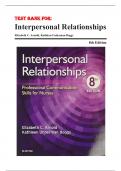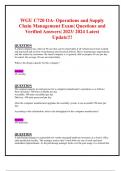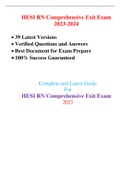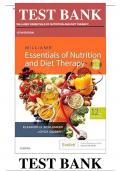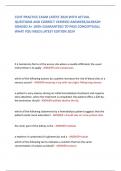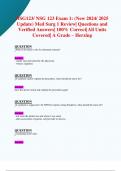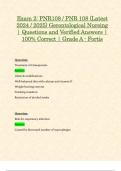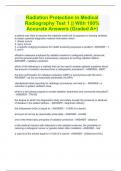Exam (elaborations)
Test Bank for Interpersonal Relationships Professional Communication Skills for Nurses 8th Edition by Elizabeth C. Arnold, Kathleen Underman Boggs 9780323544801 Chapter 1-26
Test Bank for Interpersonal Relationships Professional Communication Skills for Nurses 8th Edition by Elizabeth C. Arnold, Kathleen Underman Boggs 9780323544801 Chapter 1-26. Chapter 1. Historical Perspectives and Contemporary Dynamics Chapter 2. Clarity and Safety in Communication Chapter 3. Profe...
[Show more]
